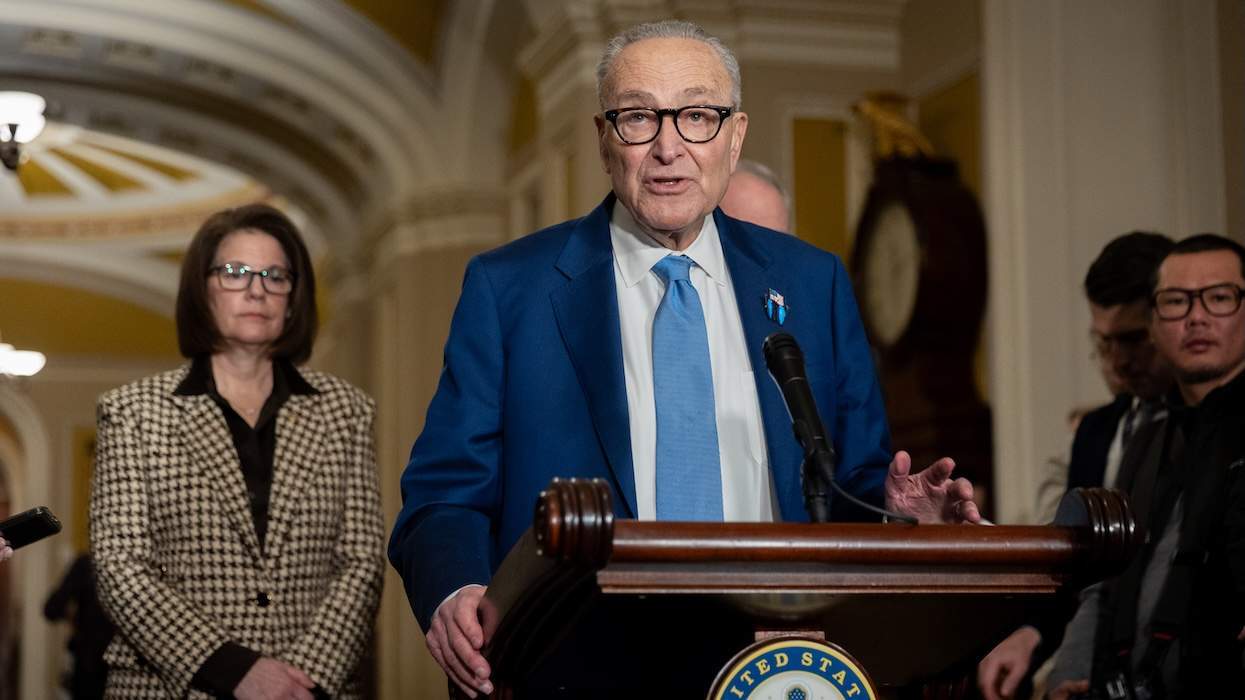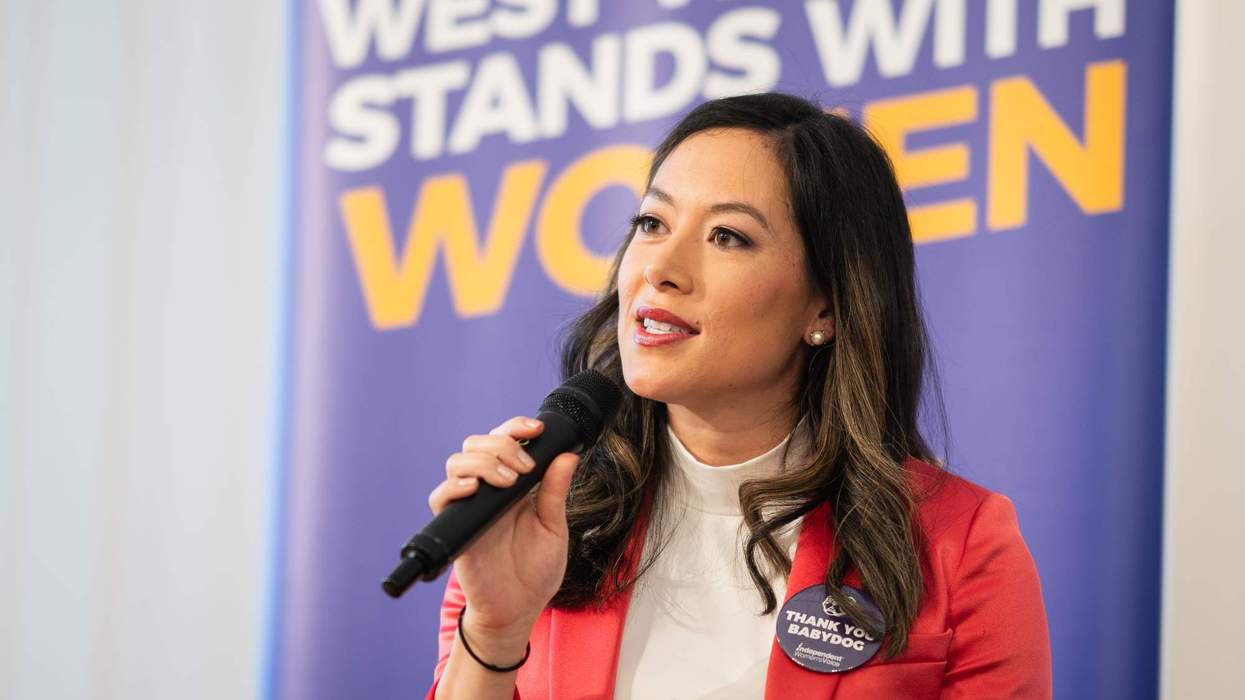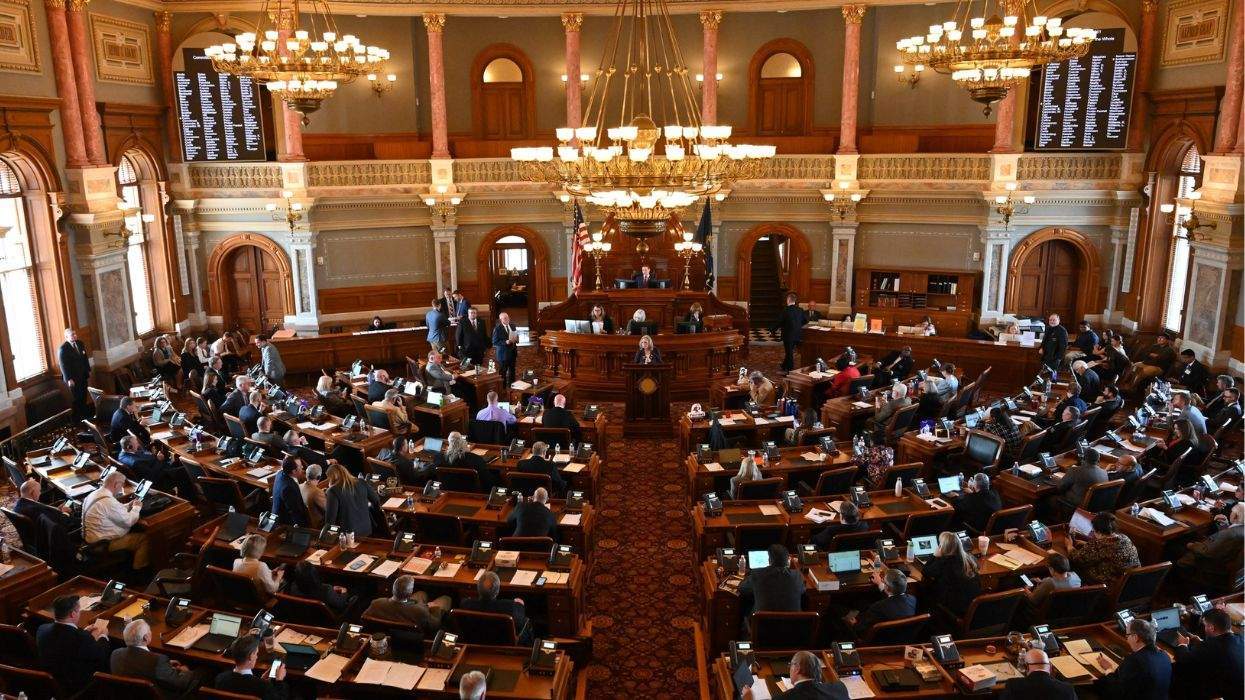If you listen to anti-LGBT politicians and activists, you'd think Americans are clamoring for "turn away the gays" laws -- but a new survey indicates that's not the case.
The 2016 American Values Atlas, released today by the Public Religion Research Institute, found that no major religious group had a majority of members supporting "license to discriminate" laws. And there was broad endorsement of marriage equality as well.
"For the first time in a PRRI poll of this size, no major religious group reports majority support for religiously based service refusals of gay and lesbian Americans," PRRI CEO Robert P. Jones said in a press release. "And most religious groups today support same-sex marriage. The religious groups in which majorities oppose same-sex marriage make up less than 20 percent of the public."
Sixty-one of those surveyed opposed allowing small business owners in their state to turn away gay or lesbian customers on religious grounds. Only half (50 percent) of white evangelical Protestants and fewer than half of Mormons (42 percent), Hispanic Protestants (34 percent), black Protestants (25 percent), and Jehovah's Witnesses (25 percent) believe small business owners should have "religious refusal" rights.
The survey also found a substantial increase in support for marriage equality from 2015 to 2016. Fifty-eight percent expressed support for same-sex marriage in the 2016 poll, compared to 53 percent in 2015. Additionally, a majority of residents in 37 states now support equal marriage rights, up from 29 states in 2014.
"At a time when Americans appear more divided than ever by partisanship and religion, there is increasing evidence that debates over gay rights have a short shelf life," said PRRI research director Dan Cox. "For the first time since PRRI has polled on this issue, a majority of young Republicans and young white evangelical Protestants support same-sex marriage."
There was still a partisan divide, but less so among younger people. Seventy-one percent of Democrats approved of marriage equality, but just 38 percent of Republicans did. However, 54 percent of Republicans under age 30 supported marriage equality. There was a similar generational difference among white evangelical Protestants; while only 31 percent of all white evangelicals supported same-sex marriage, 51 percent of those under 30 did. Support for marriage equality was greatest in the Northeast and lowest in the South, but young Southerners tended to be more supportive than their elders.
The PRRI study also found a widespread perception that gay, lesbian, and transgender Americans are still subject to discrimination. Fifty-eight percent of respondents said gay and lesbian people face significant discrimination, and 62 percent said that of transgender people. Republicans were far less likely than Democrats to perceive significant levels of discrimination against gay and lesbian people (38 percent versus 75 percent) or transgender people (44 percent versus 77 percent).
Black Americans are more likely than any other racial or ethnic group to perceive significant discrimination against gay, lesbian, or transgender people. Nearly three-quarters of black Americans said gays and lesbians (73 percent) and transgender people (72 percent) face a lot of discrimination.
The survey also covered racial and anti-immigrant discrimination. A lower percentage of whites than nonwhites perceived that black Americans still face bias, but LGBT people were more likely to say that blacks experienced discrimination. A majority across racial groups perceived anti-immigrant bias, and there was majority support for a path to citizenship for undocumented immigrants -- with support notably weaker among white Christians than other groups.
For the 2016 American Values Atlas, the PRRI conducted 40,000 interviews covering all 50 states during 2016 and early 2017. The full findings are available at the PRRI website, along with an interactive map allowing users to explore religious, political, and demographic attributes, plus attitudes on key issues, for all 50 states, four U.S. Census regions, and 30 major metropolitan areas.















